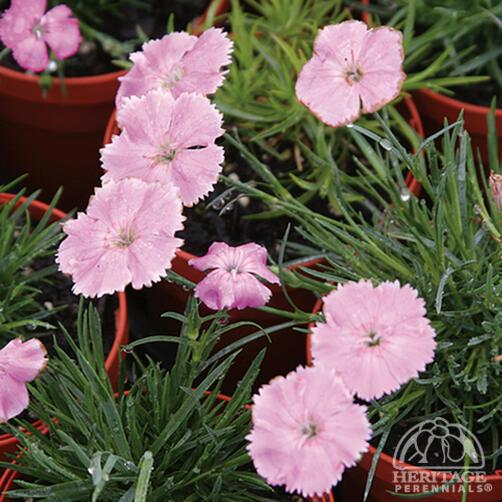Dianthus pavonius
Peacock-eye Pinks |
USDA Zone: 4-9 |
Plant number: 1.180.320
A compact species of Pinks, especially useful in the rock garden, in an alpine trough garden or gravel scree. This forms a low carpet or cushion of blue-green leaves, bearing good-sized starry single flowers in late spring. Blooms are in various shades of pink, with a sweet clove fragrance. Drought-tolerant once established. Clip lightly after blooming. Evergreen, so do not prune in fall or spring. Not always easy to divide, but this can be attempted in early spring or fall. Flowers may be attractive to butterflies. Unlike most Dianthus this species prefers lime-free neutral to acidic soils.
Further details for
Dianthus pavonius
Optimal Growing Conditions
Sun Exposure
Soil Type
Soil pH
Soil Moisture
Care Level
Appearance and Characteristics
Flower Colour
Blooming Time
Foliage Color
Plant Uses & Characteristics
Flower Head Size
Height 5-10 cm 2-4 inches
Spread 15-30 cm 6-12 inches
Foot Traffic
Growth Rate
Disclaimer: This information is presented for reference only. This plant is not currently part of our Heritage Perennials lineup.
|






